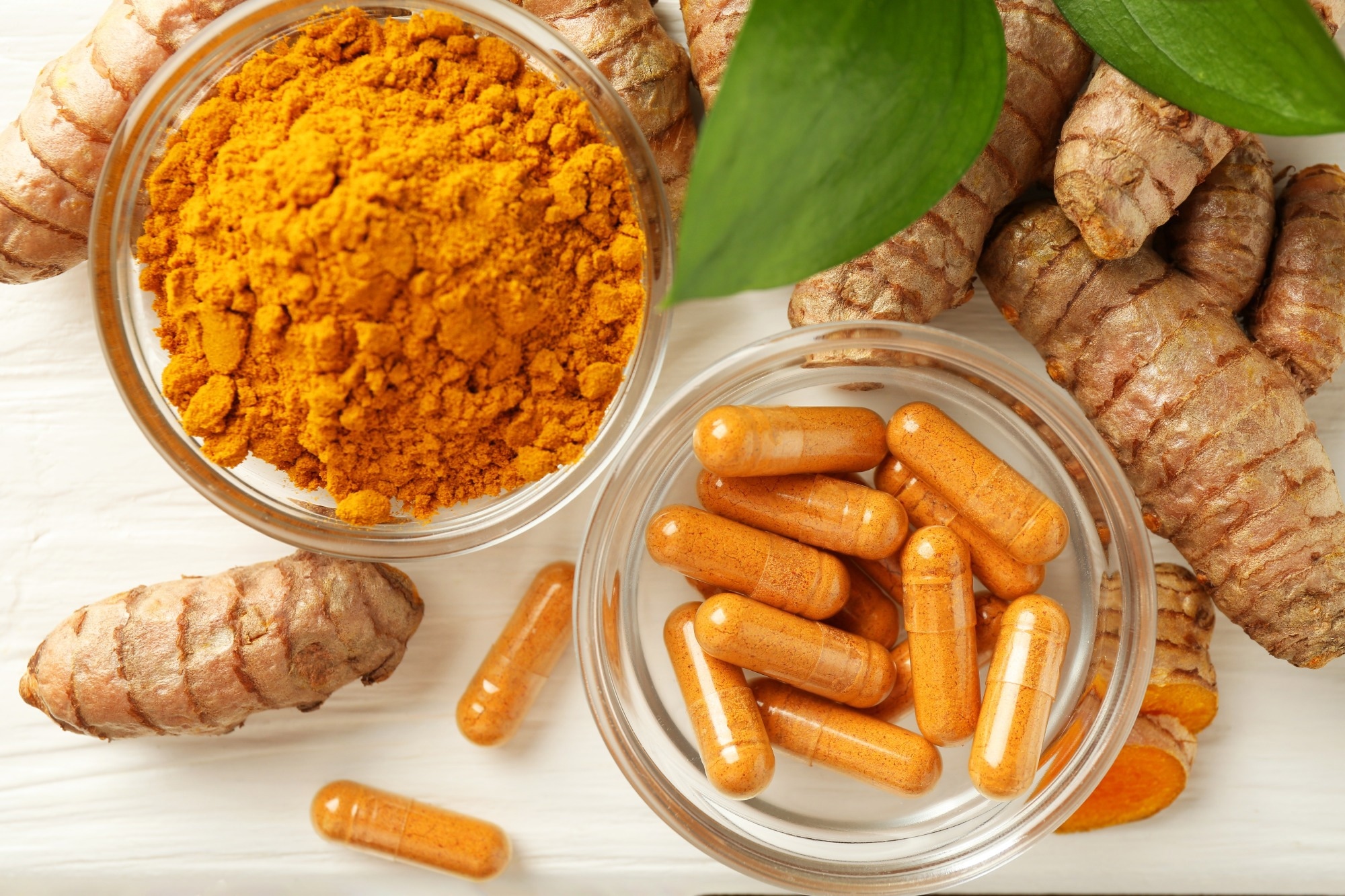A review of 20 clinical trials reveals that turmeric/curcumin supplements can aid weight and fat loss in people with diabetes or prediabetes, especially when taken in higher doses or for longer durations.
 Review: The effect of turmeric/curcumin supplementation on anthropometric indices in subjects with prediabetes and type 2 diabetes mellitus: A GRADE-assessed systematic review and dose-response meta-analysis of randomized controlled trials. Image Credit: New Africa / Shutterstock
Review: The effect of turmeric/curcumin supplementation on anthropometric indices in subjects with prediabetes and type 2 diabetes mellitus: A GRADE-assessed systematic review and dose-response meta-analysis of randomized controlled trials. Image Credit: New Africa / Shutterstock
In a recent study published in the journal Nutrition & Diabetes, researchers assessed the effects of curcumin or turmeric supplementation on anthropometric indices in people with type 2 diabetes mellitus (T2DM) or prediabetes. Diabetes imposes a significant societal burden, including indirect and direct consequences, such as work-related losses and diminished productivity.
The International Diabetes Federation estimates that diabetes-related costs will reach $1.03 trillion by 2030. Due to drawbacks of conventional treatments, such as dosage tolerance, side effects, and high costs, novel, cost-effective, and safe alternatives are being explored.
Herbal supplements are being widely used for medicinal purposes. Turmeric is commonly used as a culinary additive to enhance flavor and color. It ranks among the most common dietary supplements worldwide. However, its therapeutic effectiveness is limited due to low bioavailability. This has prompted interest in advanced delivery methods, like nanoparticles and co-administration with piperine, to improve absorption.
Curcumin, the main active component in turmeric, has beneficial effects on glycemic and anthropometric indices in metabolic diseases. It reduces the expression of transcription factors involved in fat production in the liver. Besides, curcumin exerts anti-obesity effects by repressing preadipocyte differentiation and inhibiting mitogenesis. It may also enhance fat burning, reduce fat accumulation, and increase energy expenditure.
About the study
In this study, researchers systematically reviewed and analyzed randomized controlled trials testing curcumin or turmeric in people with T2DM or prediabetes. Trials were included if they measured body weight, waist size, fat mass, or other indicators of body composition, and compared outcomes against a placebo. Studies involving pregnant women or combining curcumin with other treatments were excluded. The study followed international guidelines for systematic reviews and assessed the strength of evidence using the GRADE system.
Findings
The researchers reviewed 20 eligible trials involving 1,387 adults. Most used turmeric/curcumin doses between 80 and 2100 mg daily.
In people with T2DM, supplementation led to modest but statistically significant reductions in body weight, waist size, body fat percentage, and hip circumference. However, it did not clearly affect BMI or waist-to-hip ratio, and the certainty of evidence for most outcomes was low or very low.
In prediabetic individuals, turmeric/curcumin reduced body weight and waist size, but not BMI, and the evidence was of moderate certainty.
People who took high-absorption forms of curcumin or used it for at least 12 weeks tended to see greater benefits.
Only a few studies reported side effects, which were generally mild and included stomach discomfort, itching, or nausea.
Notably, the study also found that longer use (over 22 weeks) was linked to weight reductions, and higher doses (around 1500 mg/day) were associated with smaller waistlines.
Conclusions
This study suggests that turmeric/curcumin supplements may help reduce some markers of obesity, especially body weight and waist circumference, in people with prediabetes and T2DM. While encouraging, these effects were modest and often based on evidence rated as low in certainty.
The strongest results appeared when high-absorption formulations were used over more extended periods. More rigorous research is needed to confirm these effects and understand which types of patients benefit most.
Journal reference:
- Moradi Baniasadi M, Arzhang P, Setayesh A, Moradi M, Nasli-Esfahani E, Azadbakht L (2025). The effect of turmeric/curcumin supplementation on anthropometric indices in subjects with prediabetes and type 2 diabetes mellitus: A GRADE-assessed systematic review and dose-response meta-analysis of randomized controlled trials. Nutrition & Diabetes, 15(1), 34. DOI: 10.1038/s41387-025-00386-7